The Law on Vietnamese Nationality 2008 consists of 6 chapters, 44 articles. Analyzing all chapters and articles of the Law on Vietnamese Nationality 2008, we find that this law has the following basic contents:
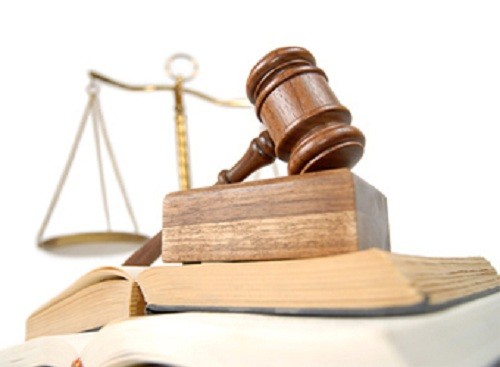
1. The single nationality principle
Along with affirming that every individual in the Socialist Republic of Vietnam is entitled to a nationality (Article 2), the Law on Vietnamese Nationality 2008 continues to affirm the principle of single nationality which was recognized in the Law on Vietnamese Nationality 1988 and in Article 3 of the Law on Vietnamese Nationality 1998. This is done to ensure the transparency and tradition of the principle of single nationality, concurrently, to overcome the contradictions in the current Law, and to solve the problems in practice. Therefore, compared to the previous two laws, the Law on Vietnamese Nationality 2008 has a fundamental difference: If the 1988 and 1998 laws were built on the principle of a thorough nationality, the Law on Vietnamese Nationality 2008 was built on the principle of a flexible nationality.
Article 4. The nationality principle
The State of the Socialist Republic of Vietnam recognizes that Vietnamese citizens have a single nationality, Vietnamese nationality, unless it is otherwise provided for by this Law.
In comparison with the principle “Recognition of a single nationality for Vietnamese citizens” of the Law on Vietnamese Nationality 1988: “The State of the Socialist of Vietnam recognises Vietnamese citizens as having only one nationality: Vietnamese” (Article 3) and the principle of single nationality of the Law on Vietnamese Nationality 1998: “The State of the Socialist Republic of Vietnam recognizes that the Vietnamese citizens have only one nationality: the Vietnamese nationality” (Article 3), it can be seen that the 2008 nationality principle is much more flexible.
In terms of formality, if the 1988 Law clearly stated "Recognition of a single nationality for Vietnamese citizens", the 1998 Law was amended to become "The principle of single nationality" and in 2008, the word "one" was dropped, only "The principle of nationality".
In terms of content, in addition to the basic content specified in the Law on Vietnamese Nationality 1998: "The State of the Socialist Republic of Vietnam recognizes that the Vietnamese citizens have only one nationality; the Vietnamese nationality", the 2008 Law also added the term " unless it is otherwise provided for by this Law". Thus, the 1998 Law did not stipulate exceptional cases of dual citizenship (although in fact there are still many cases of dual citizenship), the 2008 Law clearly stipulates these cases. Exceptions for dual citizenship are those permitted by the State President to retain foreign nationality upon being naturalized in Vietnam (Clause 3, Article 19), to regain Vietnamese nationality (Clause 5, Article 23); cases where the nationality of the child is adopted (Article 37) and the case where overseas Vietnamese have naturalized foreign nationality but still wish to retain Vietnamese nationality (Clause 2, Article 13).
The assertion that some exceptions may have dual citizenship does not mean giving up the principle of one nationality, but merely amending this principle to be more flexible, in line with our State's policy on international integration, great national unity and policies towards overseas Vietnamese. It can be said that because the 2008 Law still stipulates specific conditions to limit the status of two or more nationalities as follows:
- Firstly, upon conditions for naturalization in Vietnam, Clause 3 Article 19 clearly states: “Persons naturalized in Vietnam shall renounce their foreign nationality, except for those defined in Clause 2 of this Article in special cases, if so permitted by the President”. That means, in principle, when a foreign citizen acquires Vietnamese nationality, he or she is forced to give up his foreign nationality. Those who apply for Vietnamese nationality may be permitted for naturalization in Vietnam by the President if the fall into one of the cases specified in Clause 2 Article 19, including: a) “Being spouses, natural parents or natural offsprings of Vietnamese citizens”; b) “Having made meritorious contributions to Vietnam’s national construction and defense”; c) “Being helpful to the State of the Socialist Republic of Vietnam” or in special cases permitted by the President. In the 1998 law, it is only allowed to hold foreign nationality in cases of special nature authorized by the President. That shows the flexibility while still ensuring the principle of single nationality of the 2008 Law.
- Secondly, the Law on Vietnamese Nationality 2008 also specifies cases of automatic loss of Vietnamese nationality, which are: (1) Abandoned newborns and children (found in the Vietnamese territory whose parents are unknown, have Vietnamese nationality) who is aged under full 15 years will no longer have Vietnamese nationality in the following cases: he/she has found his/her parents who hold single foreign nationality; he/she has found his/her mother or father who holds single foreign nationality (Article 18); (2) When the nationality of the parents changes as a results of naturalization in Vietnam, restoration or renunciation of Vietnamese nationality, the nationality of the minor child who is living with his/her parents will be changed accordingly, that is, they automatically lose Vietnamese nationality (Clause 1 Article 35).
Besides, due to the recognition of the fact that some citizens have two or more nationalities, the Law on Vietnamese Nationality 2008 has added an additional article on the settlement of matters arising from the fact that a Vietnamese citizen concurrently holds a foreign nationality. According to Article 12, matters arising from the fact that a Vietnamese citizen concurrently holds a foreign nationality shall be settled under treaties to which the Socialist Republic of Vietnam is a contracting party; for case where no treaties are available, these matters shall be settled according to international practice. This Article also regulates that the Government shall conclude, propose the conclusion of, or decide on the accession to, treaties to settle matters arising from the fact that a Vietnamese citizen concurrently holds a foreign nationality. A number of multilateral international treaties on nationalities, such as the 1930 Hague Convention on Certain Conflicts of Nationalities, the 1963 Convention on the Reduction of Multiple Nationality Cases and on Military Service in the Case of Multiple Nationalities, the 1997 European Convention on Nationality.
2. Persons having Vietnamese nationality
According to Clause 1 Article 13 of the Law on Vietnamese Nationality 2008, persons having Vietnamese nationality include those who have Vietnamese nationality by the effective date of this Law and those who acquire Vietnamese nationality under this Law.
Article 13. Persons having Vietnamese nationality
1. Persons having Vietnamese nationality include those who have Vietnamese nationality by the effective date of this Law and those who acquire Vietnamese nationality under this Law.
On the basis of the provisions of Clause 1 Article 13, this can be divided into the following specific cases:
First, persons having Vietnamese nationality who have Vietnamese nationality by the effective date of the Law on Vietnamese Nationality 2008.
This includes all persons who are currently Vietnamese citizens, regardless of how they are identified or recognized. As from the effective date of the Law on Vietnamese Nationality 2008, it must be based on the provisions of this Law.
Second, persons with Vietnamese nationality by birth.
The determination of nationality by birth is an important issue in the law on nationality. Many countries determine the nationality of a new-born child by bloodline, but many countries determine by birthplace. This depends on the history of population formation and the traditions of each particular country. For our State, for the purpose of protecting children's rights, the determination of the nationality of a born child is based on a harmonious and reasonable combination of both bloodline and birthplace criteria. The combination of two criteria of bloodline and place of birth to determine the nationality of new-born children is becoming a popular trend in many countries. Based on the combination of the above two criteria, the Law on Vietnamese Nationality 2008 stipulates:
A child born inside or outside the Vietnamese territory whose parents, at the time of his/her birth, are both Vietnamese citizens has Vietnamese nationality. (Article 15)
A child born inside or outside the Vietnamese territory either of whose parents is a Vietnamese citizen and the other is a stateless person at the time of his/her birth or whose mother, at the time of his/her birth, is a Vietnamese citizen and whose father is unknown, has Vietnamese nationality. (Clause 1 Article 16)
A child either of whose parents is a Vietnamese citizen at the time of his/her birth and the other is a foreign national has the Vietnamese nationality if so agreed in writing by his/her parents at the time of birth registration. In case a child is born in the Vietnamese territory but his/her parents fail to reach an agreement on the selection of his/her nationality, the child has Vietnamese nationality. (Clause 2 Article 16)
A child born in the Vietnamese territory whose parents, at the time of his/her birth, are both stateless persons with a permanent residence in Vietnam has Vietnamese nationality. A child born in the Vietnamese territory whose mother, at the time of his/her birth, is a stateless person with a permanent residence in Vietnam and whose father is unknown, has Vietnamese nationality. (Article 17)
Abandoned newborns and children found in the Vietnamese territory whose parents are unknown, have Vietnamese nationality. (Clause 1 Article 18)
In addition to the above-mentioned regulations, the Law on Vietnamese Nationality 2008 also supplements a completely new provision compared to the Law on Vietnamese Nationality 1998, which is the regulation on retention of Vietnamese nationality. The Law on Vietnamese Nationality 2008 specifies that “overseas Vietnamese who have not yet lost Vietnamese nationality as prescribed by Vietnamese law before the effective dale of this Law may retain their Vietnamese nationality and within 5 years after the effective date of this Law, shall make registration with overseas Vietnamese representative missions to retain Vietnamese nationality” (Clause 2 Article 13). The Law stipulates that within 5 years from the effective date of the Law, overseas Vietnamese who want to retain Vietnamese nationality must register with the Vietnamese representative agency in the country where they reside. If the 5 year time limit expires without carrying out the procedures for registration to retain Vietnamese nationality, such person will automatically lose Vietnamese nationality according to the grounds for loss of Vietnamese nationality specified in Clause 3 Article 26.
3. Naturalization in Vietnam
According to Article 19 of the Law on Vietnamese Nationality 2008, foreign nationals and stateless persons permanently residing in Vietnam who file applications for Vietnamese nationality may be permitted for naturalization in Vietnam if they satisfy the following conditions: “a/ Having the full civil act capacity as prescribed by Vietnam’s laws; b/ Obeying the Constitution and laws of Vietnam; respecting the traditions, customs and practices of the Vietnamese nation; c/ Understanding Vietnamese sufficiently enough to integrate themselves into the Vietnamese community; d/ Having resided in Vietnam for 5 years or more by the time of application for naturalization; e/ Being capable of making their livelihood in Vietnam.”
However, the Law also specifies that those who apply for Vietnamese nationality may be permitted for naturalization in Vietnam without having to fully meet the conditions understanding Vietnamese, having resided in Vietnam for 5 years or more and being capable of making their livelihood in Vietnam if they fall into one of the following cases: “Being spouses, natural parents or natural offsprings of Vietnamese citizens”; “Having made meritorious contributions to Vietnam’s national construction and defense”; “Being helpful to the State of the Socialist Republic of Vietnam”.
According to international law and practice, one of the mandatory conditions to be naturalized is to know the common language of the country that the person applies for naturalization. The Law on Vietnamese Nationality 1998 also stipulates that a person applying for Vietnamese nationality must know Vietnamese.
However, in fact, there are exceptions, for example, in the case where the applicant for naturalization in Vietnam has a close relationship with people who are Vietnamese citizens, such as spouses, biological fathers, natural mothers or biological children of Vietnamese citizens. Therefore, along with the conditions for knowing Vietnamese, in Clause 2, Article 19 of this Amending Law, cases are exempted from a number of conditions, including the condition of understanding Vietnamese. Those who are exempted from some of the above conditions are also not required to renounce their foreign nationality when naturalizing in Vietnam. The remaining cases when naturalizing Vietnam will have to give up the foreign nationality, in special cases, if so permitted by the President, the person may retain the foreign nationality (Clause 3 Article 19). The Law also stipulates that persons applying for Vietnamese nationality must have Vietnamese names. These names may be selected by the applicants and written in the decisions on naturalization in Vietnam. (Clause 4 Article 19).
In addition to the above provisions, the Law on Vietnamese Nationality 2008 also supplements the policy on application for naturalization in Vietnam applicable to stateless persons permanently residing in Vietnam in Article 22. If the 1998 Law has not yet provided for the settlement of nationality for stateless residents who do not have sufficient personal papers but have settled in Vietnam, the Law on Vietnamese Nationality 2008 has solved this problem by providing: “Stateless persons who do not have adequate personal identification papers but have been stably residing in the Vietnamese territory for 20 years or more by the effective date of this Law and obey Vietnam’s Constitution and laws will be permitted for naturalization in Vietnam under the order, procedures and dossiers specified by the Government” (Article 22). Besides, others only need to have 1 of the following 4 types of documents to prove Vietnamese nationality: Birth certificate (in case the birth certificate does not clearly state the Vietnamese nationality of the holder, papers proving his/her parents’ Vietnamese nationality are required); People’s identity card; Vietnamese passport; Decision permitting the naturalization in Vietnam, decision permitting the restoration of Vietnamese nationality, decision recognizing the adoption of a foreign child, and decision permitting a foreigner to adopt a Vietnamese child (Article 11).
4. Restoration of Vietnamese nationality
According to Article 23 of the Law on Vietnamese Nationality 2008, a person who has lost his/her Vietnamese nationality and applies for restoration of Vietnamese nationality may restore his/her Vietnamese nationality, if he/she falls into any of the following cases: “a/ Having applied for permission to return to Vietnam; b/ His/her spouse, a natural parent or a natural offspring is a Vietnamese citizen; c/ Having made meritorious contributions to Vietnam’s national construction and defense; d/ Being helpful to the State of the Socialist Republic of Vietnam; e/ Conducting investment activities in Vietnam; f/ Having renounced Vietnamese nationality for acquisition of a foreign nationality but failing to obtain permission to acquire the foreign nationality.”. Concurrently, Article 23 also specifies that persons applying for restoration of Vietnamese nationality may not restore Vietnamese nationality, if such restoration is detrimental to Vietnam’s national interests (Clause 2 Article 23).
Compared with the conditions for regaining Vietnamese nationality specified in Article 21 of the 1998 Law, the 2008 Law provides for the extension of a number of cases in which one can regain Vietnamese nationality, that is: making investment in Vietnam or having renounced Vietnamese nationality to acquire foreign nationality, but not being granted foreign citizenship. This regulation aims to create favorable conditions for people of Vietnamese origin to return to invest in Vietnam and want to enjoy the same investment incentives as Vietnamese citizens. At the same time, it also solves the current problem that many cases have applied for renunciation of Vietnamese nationality but are not allowed to acquire foreign citizenship.
The 2008 Law also adds the condition to regain Vietnamese nationality for those who have been deprived of Vietnamese nationality, adds provisions on the Vietnamese name of the person who applies for the restoration of Vietnamese nationality and the cases in which the State President may allow the retention of foreign nationality (Clause 3, 4, 5, Article 23).
5. Loss of Vietnamese nationality
According to the Law on Vietnamese Nationality 2008, Vietnamese citizens lose Vietnamese nationality in the following cases:
Firstly, being permitted to renounce Vietnamese nationality.
Renunciation of Vietnamese nationality is a case where a Vietnamese citizen, for various reasons, voluntarily requests permission to renounce his Vietnamese nationality in order to acquire the nationality of another state (for example, building a family with a foreign citizen; going abroad to live with his children;etc.). Faced with such a situation, in order to create favorable conditions for Vietnamese people to do business, live and develop abroad, the Law on Vietnamese Nationality 2008 stipulates that Vietnamese citizens who have applied for renunciation of Vietnamese nationality to acquire foreign citizenship may be entitled to renounce Vietnamese nationality (Clause 1 Article 27). However, like many countries in the world, our State's nationality law specifically stipulates that those who apply for renunciation of their nationality cannot be relinquished (Clause 2 Article 27), in which, compared with the 1998 Law, there are two additional cases of Vietnamese nationality renunciation, which are two additional cases: “d/ Being kept in detention pending judgment enforcement; e/ Serving a decision on application of the administrative handling measure of confinement to an education establishment, a medical treatment establishment or a reformatory”. Concurrently, the Law on Vietnamese Nationality 2008 also specifies two subjects who cannot renounce Vietnamese nationality: A person applying for renunciation of Vietnamese nationality may not renounce Vietnamese nationality if such renunciation is detrimental to Vietnam’s national interests (Clause 3 Article 27); and cadres, civil servants and those who are serving in Vietnamese people’s armed forces may not renounce Vietnamese nationality (Clause 4 Article 27).
Secondly, being deprived of Vietnamese nationality.
According to Article 31 of the Law on Vietnamese Nationality 2008, Vietnamese citizens residing abroad may be deprived of Vietnamese nationality if they commit acts that cause serious harm to the national independence, national construction and defense or the prestige of the Socialist Republic of Vietnam.
Thirdly, annulment of decisions on the grant of Vietnamese nationality.
According to Article 33 of the Law on Vietnamese Nationality 2008, annul the decision on granting Vietnamese nationality of the person who has already naturalized in Vietnam but intentionally falsely declared or falsified papers when applying for Vietnamese nationality.
In addition to the above cases, the loss of nationality can also occur in the following cases: according to Clause 2 Article 18 and Article 35 of this Law; according to grounds defined in treaties to which the Socialist Republic of Vietnam is a contracting party (Clauses 4 and 5 Article 26). Moreover, due to the addition of regulations on registration of retaining Vietnamese nationality in Clause 2 Article 13, the 2008 Law also adds a basis for loss of Vietnamese nationality, which is “failing to register for retention of Vietnamese nationality as prescribed in Clause 2, Article 13 of this Law” (Clause 3 Article 26).
6. Change of nationality of minors and adopted children
Nationality of minor children:
Firstly, upon their parents’ naturalization in Vietnam, restoration or renunciation of Vietnamese nationality.
According to Article 35 of the Law on Vietnamese Nationality 2008: “1. When the nationality of the parents changes as a result of naturalization in Vietnam, restoration or renunciation of Vietnamese nationality, the nationality of the minor child who is living with his/her parents will be changed accordingly; 2. When only one parent is permitted for naturalization in Vietnam, restoration or renunciation of Vietnamese nationality, the minor child who is living with that person will acquire Vietnamese nationality or lose his/her Vietnamese nationality, if so agreed in writing by his/her parents.” (Clauses 1 and 2 Article 3)
Secondly, parents are deprived of Vietnamese nationality or have their decisions on the grant of Vietnamese nationality annulled.
According to Article 36 of the Law on Vietnamese Nationality 2008: “The nationality of a minor child will not change when both of his/her parents are or either of them is deprived of Vietnamese nationality or the decision on the grant of Vietnamese nationality is annulled.”
Nationality of adopted minor children:
According to Article 37 of the Law on Vietnamese Nationality 2008, there are 03 cases of nationality of adopted minor children, which are:
1. A child who is a Vietnamese citizen and adopted by a foreigner will retain his/her Vietnamese nationality.
2. A child who is a foreign national and adopted by a Vietnamese citizen will acquire Vietnamese nationality from the date a competent Vietnamese agency approves the adoption.
3. A child who is a foreign national and adopted by parents one of whom is a Vietnamese citizen and the other is a foreign national may be permitted for naturalization in Vietnam according to the application for Vietnamese nationality filed by his/ her adoptive parents and is exempt from conditions prescribed in Clause 1, Article 19 of this Law.
7. Jurisdiction and procedures for settling citizenship matters
Jurisdiction for settling citizenship matters: If the Law on Vietnamese Nationality 1988 had only one article (Article 15), general provisions on the authority of the Council of Ministers (now the Government) in the admission, return, surrender, deprivation of nationality and annulment of decisions on naturalization in Vietnam, the Law on Vietnamese Nationality 1998 devoted a whole chapter (Chapter V) specifically on the competence of state agencies in matters of nationality. The Law on Vietnamese Nationality 2008 still retains the provisions of the 1998 Law: Article 38 on tasks and powers of the President for nationality; Article 39 on responsibilities of the Government for nationality; Article 40 on responsibilities of ministries, ministerial-level agencies, provincial-level People’s Committees and overseas Vietnamese representative missions.
Procedures for settling citizenship matters:
Firstly, the Law on Vietnamese Nationality 2008 has codified a number of regulations on procedures and order of settlement of nationality matters previously reflected in sub-law documents.
Thereby making this Law more specific procedural provisions than the 1998 Law. For example: Article 8 (regulations on dossiers of application for Vietnamese citizenship) of Decree No. 104/1998/ND/CP of Vietnam’s Government dated December 31, 1998 detailing and guiding the implementation of the Law on Vietnamese Nationality 1998, which was codified and reflected in Article 20 of the Law on Vietnamese Nationality 2008; Article 20 (Application for renunciation of Vietnamese nationality) of the above-mentioned Decree was also codified and reflected in Article 28 of the Law on Vietnamese Nationality 2008.
Secondly, compared with the 1998 Law, the Law on Vietnamese Nationality 2008 has supplemented regulations on the order and procedures for settling citizenship matters.
Which are: order of and procedures for processing of dossiers of application for Vietnamese nationality; application for renunciation of Vietnamese nationality; application for restoration of Vietnamese nationality; deprivation of Vietnamese nationality; annulment of decisions on the grant of Vietnamese nationality. For each matter of nationality, the Law specifies what documents to include (Articles 20, 24, and 28) and the process of handling dossiers from the provincial to the central level. For those who want to re-enter, revert or renounce Vietnamese nationality, submit their dossiers at the Department of Justice of the place of residence (for those who apply for renunciation of Vietnamese nationality who are currently abroad, they can apply at a Vietnamese representative mission abroad), then the Department of Justice will send a written request to the provincial-level police office to verify the identity of the applicant to re-enter, return, and renounce Vietnamese nationality. After receiving the verification results from the Public Security agency, the Department of Justice shall complete the dossier and submit it to the President of the Provincial People's Committee for the President of the Provincial People's Committee to consider, draw conclusions and propose opinions to the Ministry of Justice. Particularly in case the applicant for renunciation of Vietnamese nationality submits the dossier at the overseas Vietnamese representative mission, the overseas Vietnamese representative mission shall verify and transfer the dossier to the Ministry of Foreign Affairs for transfer to the Ministry of Justice. After receiving the dossiers transferred by the provincial-level People's Committees or overseas Vietnamese representative missions, the Ministry of Justice shall process the dossiers, carry out necessary procedures and report them to the Prime Minister for submission to the State President for consideration and decision.
Thirdly, the Law on Vietnamese Nationality 2008 represents the reform of administrative procedures, making the procedures for naturalization, renunciation, and restoration of Vietnamese nationality simpler and shortening the waiting time for the procedures.
According to this Law, the total processing time at agencies from provincial to central level for naturalization is 115 days (excluding the time to supplement the application for naturalization), for the application for restoration of Vietnamese nationality, it is 85 days (in case the application is submitted in the country) or 70 days (in the case of submission of the application at the Vietnamese representative mission abroad), for the application for renunciation of Vietnamese nationality, it is 80 days (in the case of filing at the Department of Justice) or 65 days (in the case of submitting the application at the Vietnamese representative mission abroad). The above deadlines are the actual processing time of the dossiers at the competent agencies, excluding the time for transferring dossiers.
The 1998 Law did not regulate the order of settlement of each specific matter, but does stipulate the time limit for processing a petition for citizenship in Article 38, accordingly, the time limit for processing an application for Vietnamese citizenship is no more than 12 months, an application for renunciation of Vietnamese nationality or for restoration of Vietnamese nationality is no later than 6 months from the date of receipt of a complete and valid dossier.
Thus, compared with the time limit specified in the 1998 Law, the time limit for settling citizenship matters specified in the 2008 Law has been significantly shortened. This can be considered as a breakthrough in the settlement of citizenship dossiers, contributing to the public implementation and transparency of administrative procedures and administrative reform under the direction of the Prime Minister. The regulation of the time for processing dossiers at each stage in the process creates conditions for people to have a legal basis for requesting competent state agencies to promptly and legally settle nationality-related matters.
Source: dankinhte.vn
- Key word:
- Law on Vietnamese Nationality 2008
 Article table of contents
Article table of contents
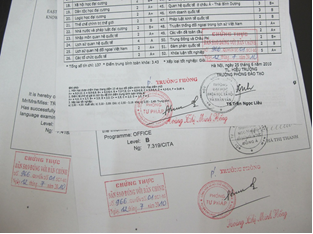
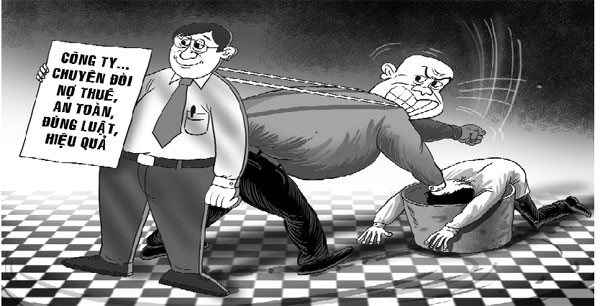
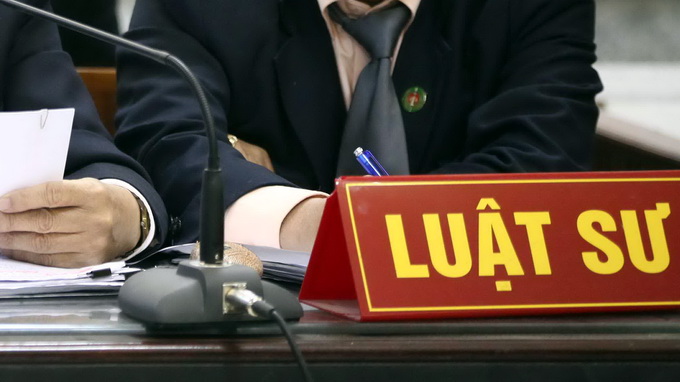
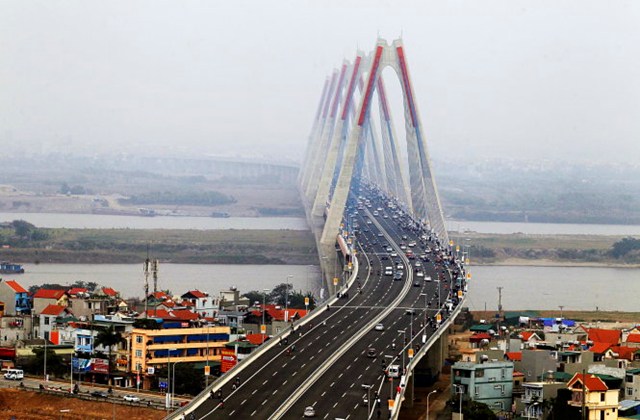
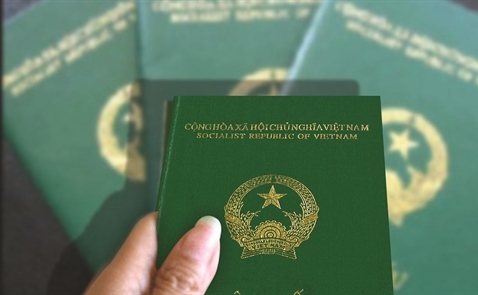
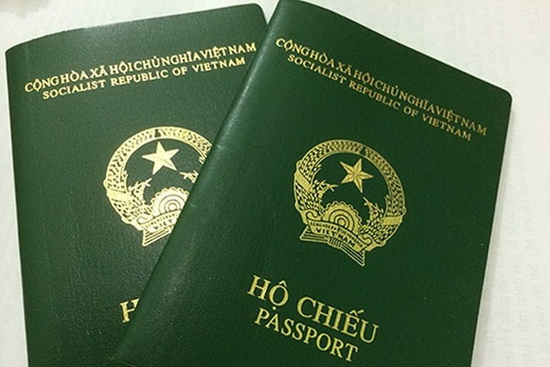
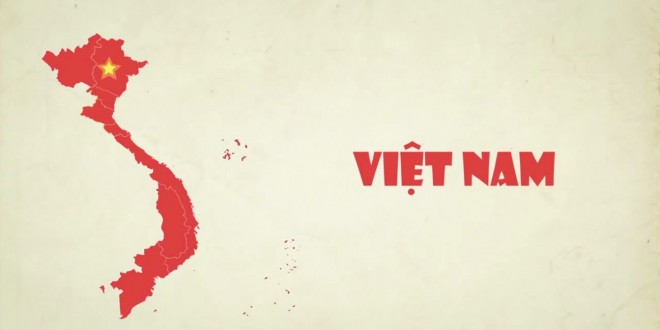


.Medium.png)
.Medium.png)
.Medium.png)
.Medium.png)
